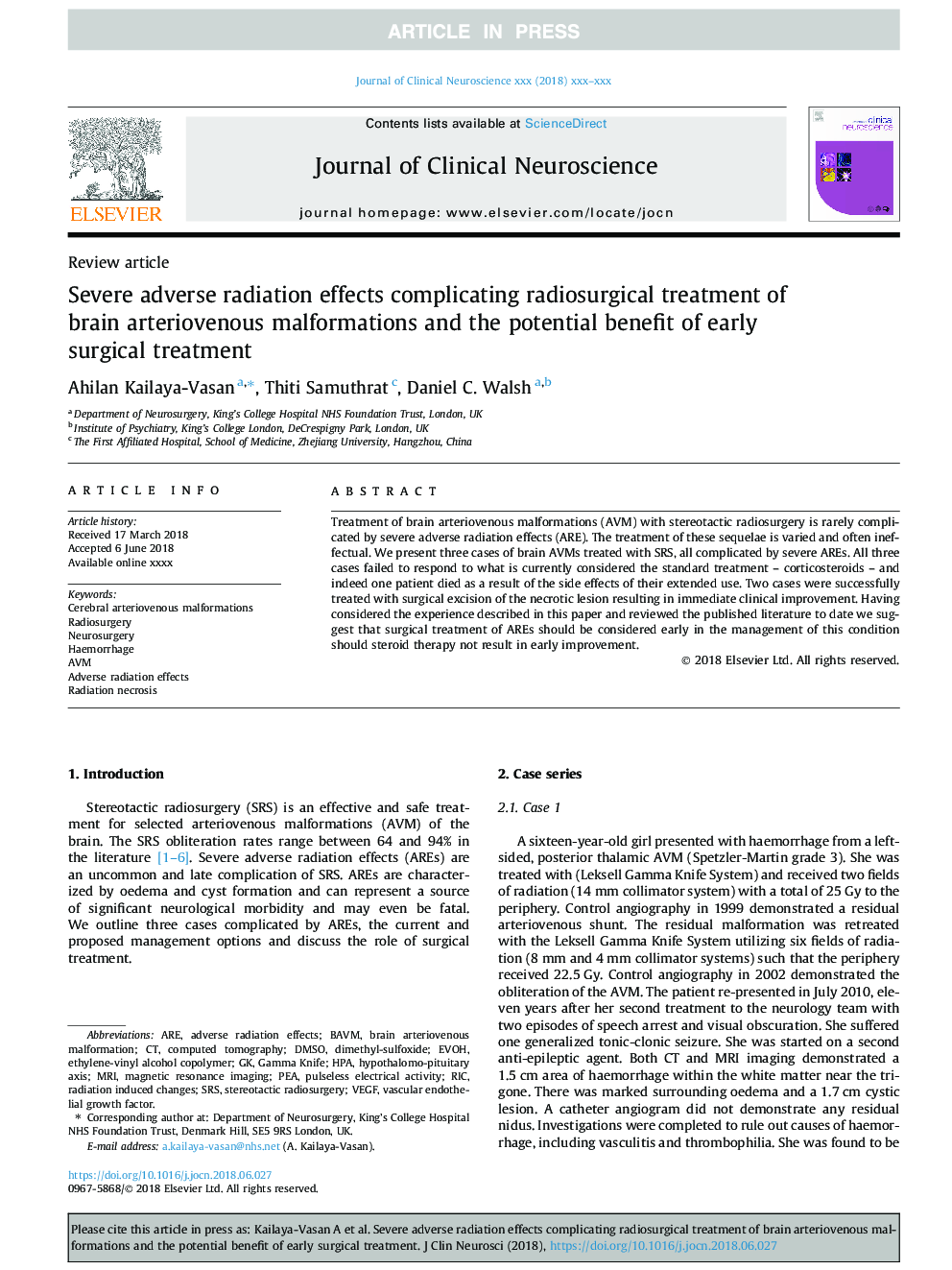| Article ID | Journal | Published Year | Pages | File Type |
|---|---|---|---|---|
| 10215444 | Journal of Clinical Neuroscience | 2018 | 7 Pages |
Abstract
Treatment of brain arteriovenous malformations (AVM) with stereotactic radiosurgery is rarely complicated by severe adverse radiation effects (ARE). The treatment of these sequelae is varied and often ineffectual. We present three cases of brain AVMs treated with SRS, all complicated by severe AREs. All three cases failed to respond to what is currently considered the standard treatment - corticosteroids - and indeed one patient died as a result of the side effects of their extended use. Two cases were successfully treated with surgical excision of the necrotic lesion resulting in immediate clinical improvement. Having considered the experience described in this paper and reviewed the published literature to date we suggest that surgical treatment of AREs should be considered early in the management of this condition should steroid therapy not result in early improvement.
Keywords
BAVMRICPEAEVOHSRSDMSOMRIMagnetic resonance imagingcomputed tomographyradiosurgeryNeurosurgeryHaemorrhagedimethyl-sulfoxideStereotactic radiosurgeryVascular endothelial growth factorVascular Endothelial Growth Factor (VEGF)pulseless electrical activityAVMHPABrain arteriovenous malformationCerebral arteriovenous malformationsRadiation necrosisAREGamma KnifeEthylene-vinyl alcohol copolymer
Related Topics
Life Sciences
Neuroscience
Neurology
Authors
Ahilan Kailaya-Vasan, Thiti Samuthrat, Daniel C. Walsh,
